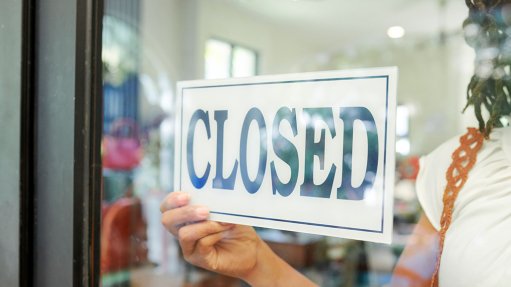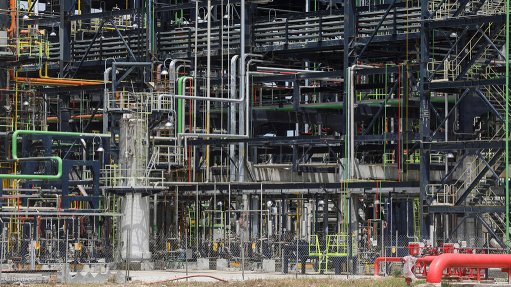From Waste to Wealth: Why South Africa Can Lead the Circular Economy Movement
This article has been supplied.
By: Wesgro CEO - Wrenelle Stander
What if we stopped seeing waste as something to discard, and started recognising it as a resource we haven’t fully unlocked?
That’s the mindset shift at the core of the circular economy. Rather than following the traditional "take-make-dispose" model, the circular approach keeps materials, products, and resources in use for as long as possible. It’s built on three key principles: eliminating waste by design, regenerating natural systems, and rethinking industries to focus on reuse, repair, and recycling. This is a full-system rethink, one that’s gaining global traction as a smarter, more sustainable way to grow economies.
As South Africa works to accelerate economic growth while tackling poverty, unemployment, and inequality, the circular economy offers significant opportunities. Globally, it is expected to more than triple in value by 2033, reaching $1.9 trillion. Regions that act early stand to gain the greatest payoff from this growing economy.
Cape Town and the Western Cape is well placed to lead Africa’s circular transition. Strong public-private partnerships, a vibrant innovation ecosystem, and deep expertise in green industries support this potential. The circular economy should not be viewed as an afterthought but as a core part of our growth strategy. Businesses that move early can reduce input costs, strengthen supply chains, access new markets, and help build a more resilient regional economy.
This came into sharper focus at Wesgro’s Business Outlook event held in Cape Town earlier this August. The event brought together key business leaders and senior government officials, including the National Minister of Forestry, Fisheries and the Environment Dr Dion George, and Western Cape Premier Alan Winde. The event also marked the launch of the CEO Guide to the Circular Economy, a collaboration between Wesgro and GreenCape, the sector development agency supporting green economic growth in the province. The guide provides a practical roadmap for business leaders, offering tools, case studies, and clear actions to help accelerate the shift from linear to circular business models.
The Western Cape already has a strong foundation. GreenCape estimates the region has up to $366 million in untapped circular value each year, spanning organics, plastics, e-waste and renewable energy. These are bankable opportunities ready to be scaled.
One example already showing what’s possible is the V&A Waterfront. South Africa’s most visited destination has also become a leader in sustainable development. From phasing out single-use plastic bags to building its own blackwater treatment facility and redistributing surplus food, the precinct has embraced circularity. Its Ridge office building sends zero waste to landfill, while cutting water and energy use far below conventional levels.
These efforts generate measurable returns. The Waterfront saves millions in utility costs each year, diverts over 2,700 tonnes of waste, and attracts tenants and consumers aligned with sustainability. As Woolworths Holdings’ Antony Melck put it: “Our success doesn’t come in spite of circularity. It comes because of it.”
The City of Cape Town is also making significant investments to support the transition to a circular economy. Between 2021 and 2028, close to R4 billion has been committed to building the infrastructure needed for this shift. This includes new recycling and composting facilities, expanded household waste services, and drop-off sites that make it easier for residents and businesses to manage waste more responsibly. In addition, large waste-generating businesses are now required to submit formal plans to reduce the amount of waste they send to landfill, creating accountability and aligning economic activity with sustainability goals.
This policy clarity creates a stable environment for business planning. It supports entrepreneurship, promotes innovation, and opens markets for green technology and services. The Western Cape Industrial Symbiosis Programme (WISP), delivered by GreenCape and funded by the City, is a crucial initiative. At its core, the programme helps businesses identify opportunities to use each other’s waste as a resource. For example, one company’s offcuts or by-products could become raw materials for another. This process, known as industrial symbiosis, reduces costs, cuts waste, and supports new revenue streams. Since it began in 2013, WISP has helped divert more than 146,000 tonnes of waste from landfill and has contributed to the creation of over 400 jobs.
Globally, the circular economy is becoming mainstream. The European Union has embedded it in industrial strategy. China has passed legislation to improve material efficiency. South Africa’s membership in the African Circular Economy Alliance shows that we are part of a continental movement.
The transition will require stronger collaboration. At the CEO Guide launch, Professor Linda Godfrey from the CSIR pointed out during a panel discussion that many companies still think of circularity as just recycling. In truth, it goes much further. Circularity also includes new service models, modular product designs, longer product lifespans, and remanufacturing. To speed up widespread adoption, we need greater awareness, focused education, and effective incentives.
The panel included speakers from Shoprite, Heineken, the Waste Management Bureau, and the City of Cape Town. All agreed that partnerships will shape the future. No single player can drive this shift alone.
But several hurdles remain. Regulatory frameworks are fragmented, support for green SMEs is limited, and the contribution of informal waste pickers is often undervalued. Despite operating outside the formal economy, waste pickers play a vital role in recovering recyclable materials, reducing landfill pressure, and supplying raw materials to industries at no cost to the state. They are central to South Africa’s recycling ecosystem, yet they face limited recognition, income insecurity, and poor working conditions. Including them meaningfully in circular strategies is not only a matter of fairness, but also key to expanding the reach and impact of circular practices.
As Freek van Eijk of Holland Circular Hotspot aptly put it: “This isn’t about doing less harm. It’s about doing more good.”
That’s a principle we should adopt with urgency. The appetite for green innovation is growing. What we need now is action at scale, including more investment, more collaboration, and more businesses stepping up to reimagine waste as value.
Article Enquiry
Email Article
Save Article
Feedback
To advertise email advertising@creamermedia.co.za or click here
Press Office
Announcements
What's On
Subscribe to improve your user experience...
Option 1 (equivalent of R125 a month):
Receive a weekly copy of Creamer Media's Engineering News & Mining Weekly magazine
(print copy for those in South Africa and e-magazine for those outside of South Africa)
Receive daily email newsletters
Access to full search results
Access archive of magazine back copies
Access to Projects in Progress
Access to ONE Research Report of your choice in PDF format
Option 2 (equivalent of R375 a month):
All benefits from Option 1
PLUS
Access to Creamer Media's Research Channel Africa for ALL Research Reports, in PDF format, on various industrial and mining sectors
including Electricity; Water; Energy Transition; Hydrogen; Roads, Rail and Ports; Coal; Gold; Platinum; Battery Metals; etc.
Already a subscriber?
Forgotten your password?
Receive weekly copy of Creamer Media's Engineering News & Mining Weekly magazine (print copy for those in South Africa and e-magazine for those outside of South Africa)
➕
Recieve daily email newsletters
➕
Access to full search results
➕
Access archive of magazine back copies
➕
Access to Projects in Progress
➕
Access to ONE Research Report of your choice in PDF format
RESEARCH CHANNEL AFRICA
R4500 (equivalent of R375 a month)
SUBSCRIBEAll benefits from Option 1
➕
Access to Creamer Media's Research Channel Africa for ALL Research Reports on various industrial and mining sectors, in PDF format, including on:
Electricity
➕
Water
➕
Energy Transition
➕
Hydrogen
➕
Roads, Rail and Ports
➕
Coal
➕
Gold
➕
Platinum
➕
Battery Metals
➕
etc.
Receive all benefits from Option 1 or Option 2 delivered to numerous people at your company
➕
Multiple User names and Passwords for simultaneous log-ins
➕
Intranet integration access to all in your organisation


















